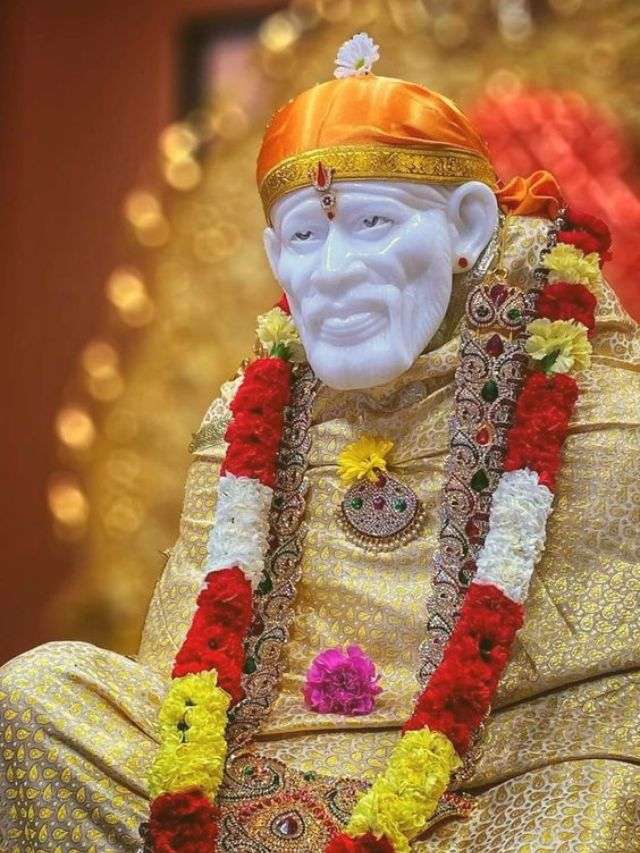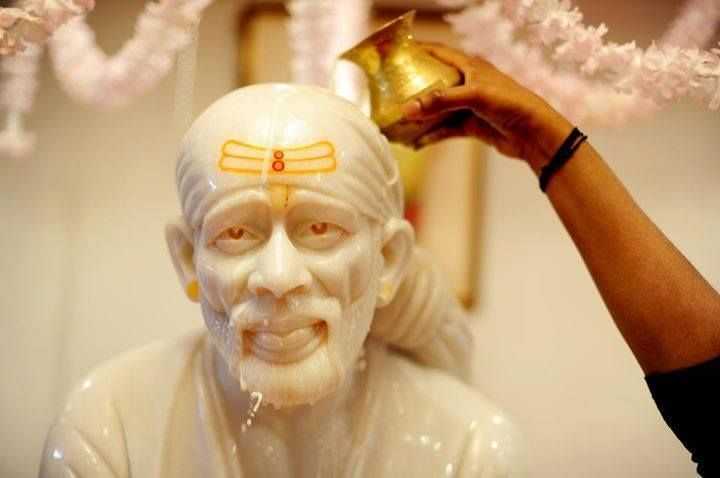Shirdi Sai Baba, a revered spiritual master who resided in Shirdi, Maharashtra, during the late 19th and early 20th centuries, continues to inspire millions with his profound teachings. Often referred to as a saint, a fakir, and an incarnation of divine love, Sai Baba’s life was a testament to unity, compassion, and unwavering faith. His teachings, though simple, hold deep wisdom that remains relevant in our complex modern world. The essence of his philosophy can be encapsulated in the term “Sai Vichaar,” meaning “Sai’s thoughts” or “reflections on Sai.” This article delves into the core tenets of Sai Vichaar, Reflections on the Teachings of Shirdi Sai Baba that guided his life and continue to illuminate the path for his devotees.
At the heart of Sai Vichaar lies the fundamental principle of “Sabka Malik Ek” – “One God governs all.” Sai Baba transcended religious boundaries, embracing both Hindu and Muslim traditions. He lived in a mosque he named “Dwarakamayi” and encouraged his devotees to read both the Quran and Hindu scriptures like the Bhagavad Gita and Ramayana. He emphasized the underlying unity of all faiths, urging people to look beyond superficial differences and recognize the single divine power that permeates the universe. This message of universalism remains a powerful antidote to the divisiveness that often plagues society.
Another cornerstone of Sai Vichaar is the importance of faith (Shraddha) and patience (Saburi). Sai Baba often stressed that unwavering faith in God and the Guru, coupled with patient perseverance, are essential for spiritual progress and the fulfillment of one’s desires. He taught that difficulties and delays are often tests of our faith and that with patience, divine grace will eventually manifest. This principle encourages devotees to remain steadfast in their devotion, even when faced with challenges, trusting in the wisdom and timing of the divine.
Love and compassion formed the bedrock of Sai Baba’s interactions with all beings. He treated everyone with kindness and empathy, regardless of their caste, religion, or social status. His life was filled with acts of selfless service, healing the sick, feeding the hungry, and comforting the distressed. Sai Vichaar emphasizes the importance of extending this love and compassion to all creatures, recognizing the divine spark within each one. This principle calls for an active engagement with the world, driven by a desire to alleviate suffering and promote well-being.
Sai Baba placed immense significance on the role of the Guru. He considered the Guru to be a spiritual guide, a beacon of light who leads the disciple from darkness to enlightenment. Surrender to the Guru, with complete faith and devotion, is a key aspect of Sai Vichaar. The Guru’s guidance helps to dismantle the ego and facilitates the disciple’s journey towards self-realization. This principle underscores the value of seeking wisdom from those who have walked the spiritual path and the importance of humility in the pursuit of knowledge.
Selfless service (Seva) was an integral part of Sai Baba’s life and teachings. He believed that serving others without expecting anything in return purifies the heart and brings one closer to the divine. His own life was a constant offering of service, and he encouraged his devotees to engage in acts of charity and kindness. Sai Vichaar highlights the transformative power of selfless action, emphasizing that true happiness lies in giving rather than receiving.
Sai Baba often spoke against attachment to worldly possessions and the ego. He taught that these attachments create illusion and suffering, hindering spiritual progress. He encouraged his devotees to cultivate detachment, to perform their duties without being overly concerned about the results, and to recognize the impermanent nature of material things. Subduing the ego, with its desires and pride, is crucial in Sai Vichaar for experiencing inner peace and connecting with the true self.
The concept of karma also plays a significant role in Sai Vichaar. Sai Baba believed that every action has a consequence and that individuals reap what they sow. He encouraged his devotees to perform good deeds and to accept the results of their past actions with equanimity. Understanding the law of karma fosters a sense of responsibility for one’s actions and motivates individuals to live a righteous life.
Sai Baba often used simple parables and stories to convey profound spiritual truths. His teachings were practical and relatable, emphasizing the importance of living a moral and ethical life in the present moment. He encouraged his devotees to remember God constantly, to chant His name, and to engage in prayer and meditation. These practices help to purify the mind, cultivate inner peace, and strengthen one’s connection with the divine.
In essence, Sai Vichaar is a holistic philosophy that encompasses love, faith, patience, unity, service, and detachment. It is a path that emphasizes inner transformation through devotion to God and the Guru, coupled with selfless action and ethical conduct. The enduring appeal of Sai Baba lies in the universality of his teachings, which transcend religious and cultural barriers, offering guidance for a meaningful and fulfilling life. By reflecting on and internalizing the principles of Sai Vichaar, individuals can navigate the complexities of life with greater wisdom, compassion, and inner peace, ultimately realizing the divine within themselves and in all creation. The timeless wisdom of Sai Baba continues to resonate, offering a beacon of hope and a path towards spiritual awakening for all who seek it.
For more updates, Stay tuned Sai satcharitra pdf.


